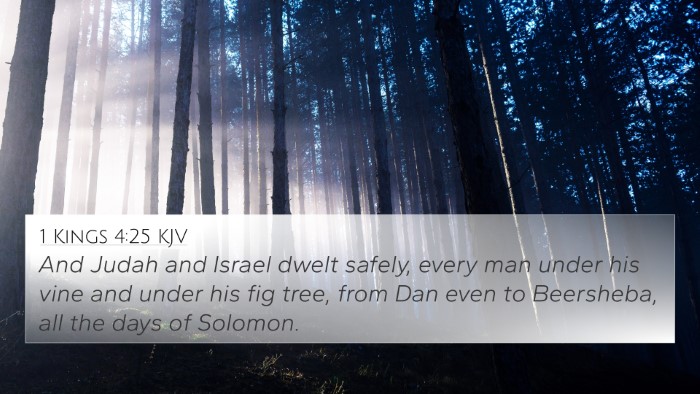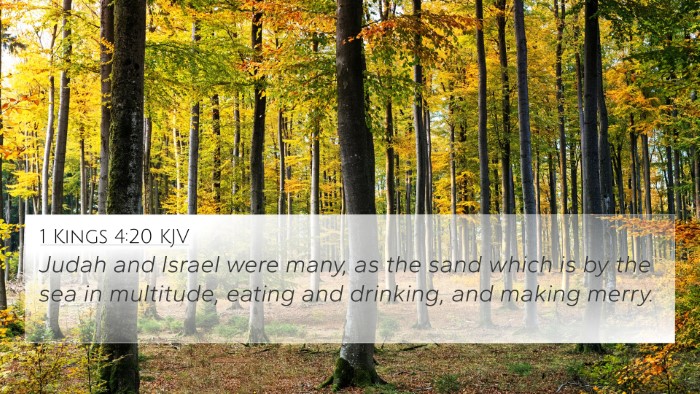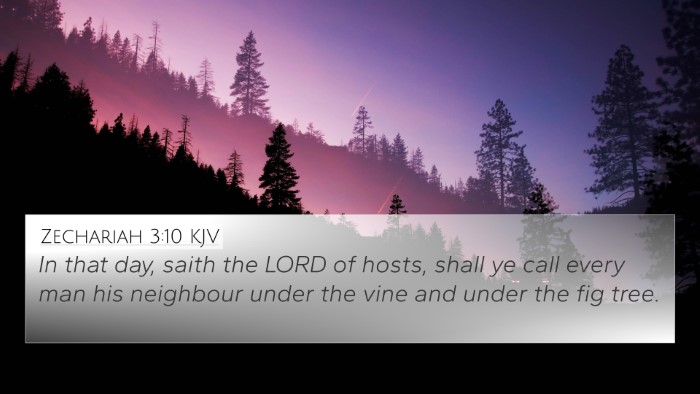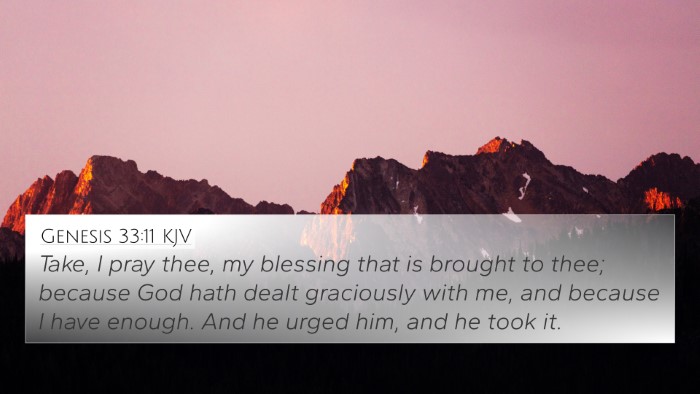Understanding 2 Kings 18:31
Bible Verse: "Hearken not to Hezekiah: for thus saith the king of Assyria, Make an agreement with me by a present, and come out to me: and eat ye every one of his vine, and every one of his fig tree, and drink ye every one the waters of his own cistern." (2 Kings 18:31, KJV)
Summary of Meaning
This verse captures the taunting words of the Assyrian king, who sought to persuade the people of Jerusalem to abandon their trust in King Hezekiah and in God. The request reflects both the desperation of the Assyrian forces and their underestimation of God's power. Through a psychological strategy, the Assyrians aimed to dilute the faith and resolve of the people of Judah by promising immediate relief and comfort.
Insights from Public Domain Commentaries
Matthew Henry
According to Matthew Henry, this verse illustrates the Assyrian king's insidious tactics. He was trying to tempt the inhabitants of Jerusalem with the prospect of ease and stability if they surrendered. Rather than trusting in Hezekiah's leadership and the divine protection of God, the offer represents a moral and spiritual compromise that can lead to dire consequences.
Albert Barnes
Albert Barnes elaborates on the historical context, noting that this was a part of a broader campaign by Sennacherib, the king of Assyria. Barnes explains how the Assyrian king’s promises of sustenance and comfort were deceptive and masked the ultimate aim of conquest and oppression. The assurance of personal comfort was juxtaposed with the reality of losing their autonomy.
Adam Clarke
Adam Clarke emphasizes the importance of analyzing the text's deeper implications. He posits that the invitation to "make an agreement" symbolizes the trials of faith against worldly assurances. Clarke suggests that the true challenge for the people was accepting spiritual truths over temporary comforts offered by a hostile power seeking their downfall.
Cross-References
- Isaiah 36:16-17 - Similar dialogue, where the Assyrians attempt to negotiate with the people of Jerusalem.
- Isaiah 37:10-11 - Hezekiah is warned not to let Sennacherib's threats dissuade him from trusting God.
- 2 Chronicles 32:10-11 - Parallel account that reinforces the challenge posed by the Assyrian king.
- Philippians 4:19 - Encouragement that God will provide for His people, contrasting earthly temptations.
- Matthew 6:19-21 - The admonition against seeking earthly treasures as it leads one away from God.
- Psalm 46:1-3 - A reminder that God is a refuge and strength during times of trouble.
- Jeremiah 17:5-8 - The contrast between trusting in man and trusting in God, echoing the message of Hezekiah's leadership.
- 1 Thessalonians 3:10-13 - The importance of steadfast faith in difficult times, applicable to the context of 2 Kings 18.
- Romans 8:31 - Affirmation that if God is for us, no one can stand against us, resonating with Hezekiah’s plight.
- 2 Timothy 1:7 - A note on the spirit of fear versus power and love, applicable in the face of Assyrian threats.
Conclusion
In examining 2 Kings 18:31, we uncover a profound message about faith, temptation, and spiritual resilience in the face of external pressures. The verse serves as a reminder to choose reliance on God over fleeting comforts offered by adversaries. By understanding this scripture through the lenses of various commentaries, believers can appreciate the depth of its warning and the encouragement it provides for their spiritual journeys.








